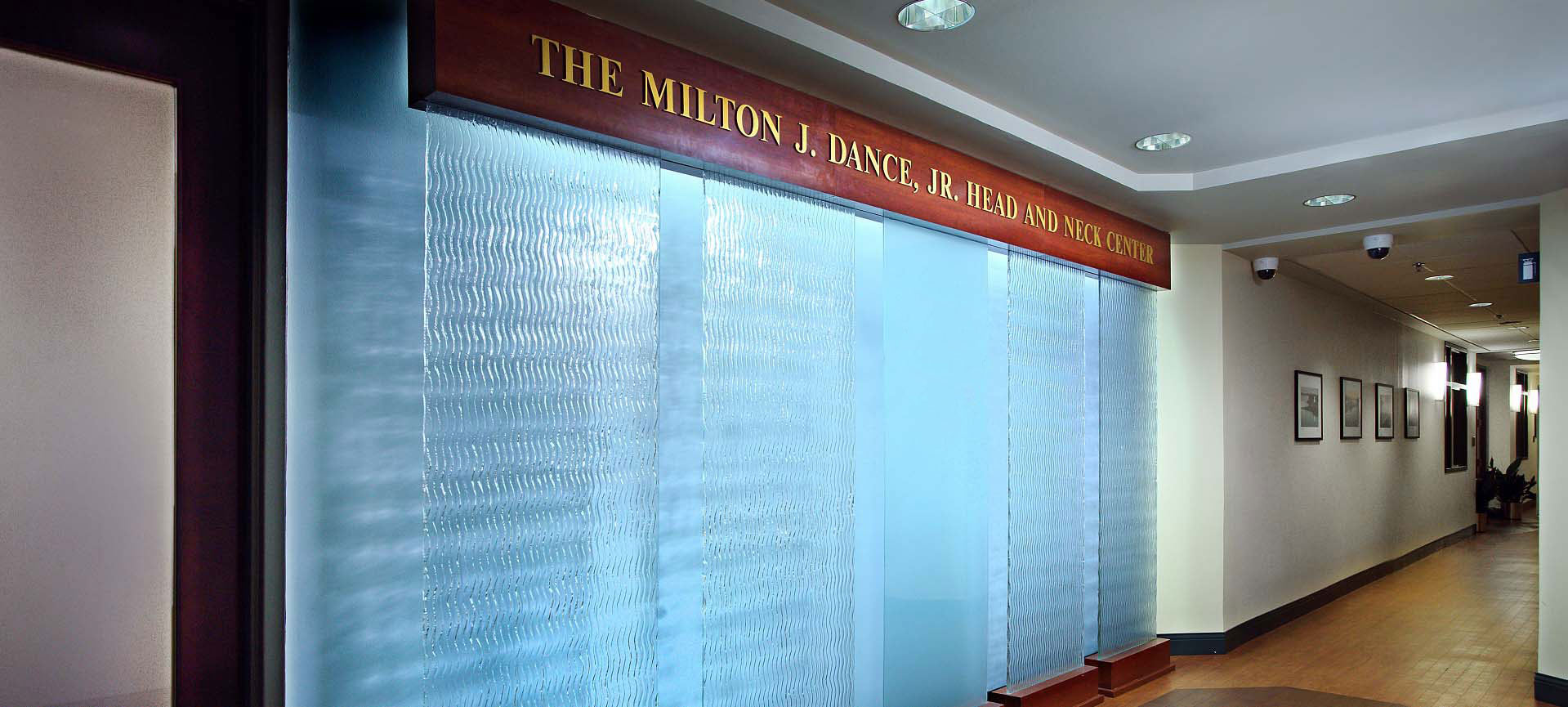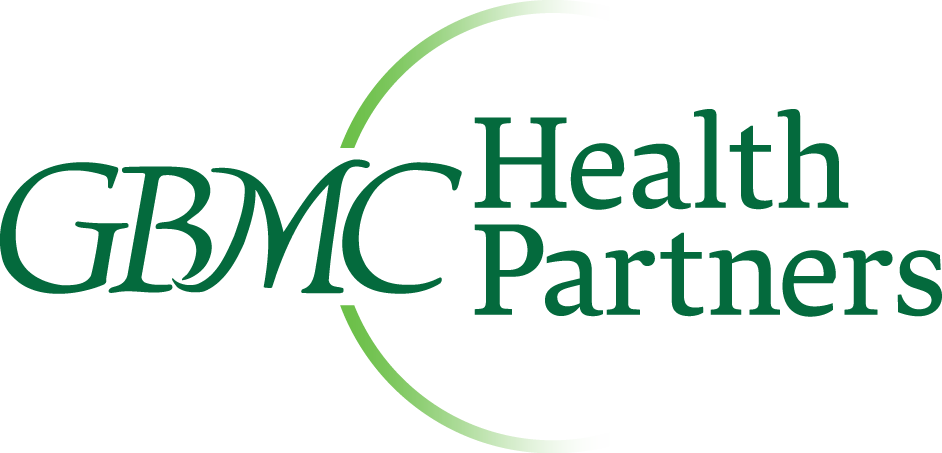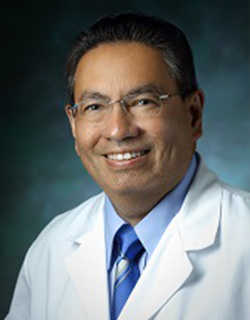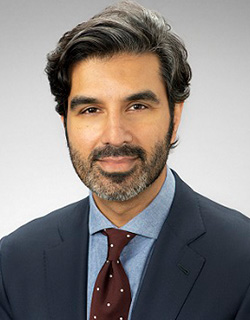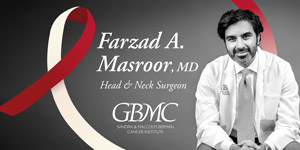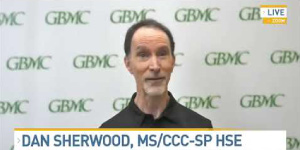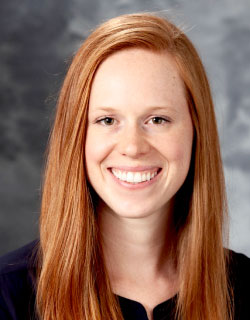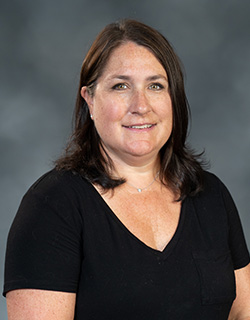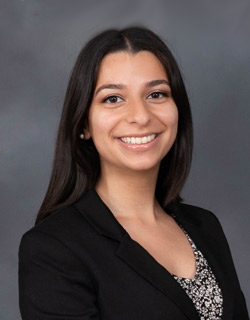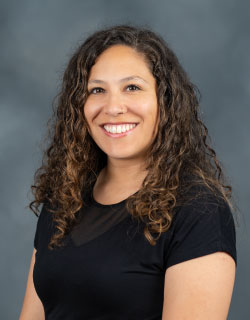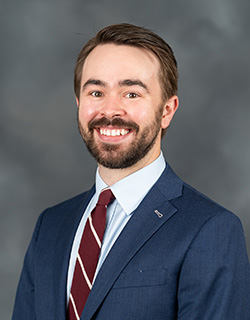Adult Stroke & Neuro Rehabilitation
Adult Stroke & Neuro Rehabilitation
The Milton J. Dance, Jr. Head and Neck Center is the first choice of care for adult patients with swallowing, communication, and cognitive-linguistic disorders. We provide patient -centered, interdisciplinary care for people affected by stroke, traumatic brain injury, chemotherapy-related adverse effects, and other neurological disorders. These diagnoses may result in a new speech-language problem, such as imprecise, "slurred" speech, word-finding difficulties, and changes in cognition, such as memory loss or attentional deficits.
Swallowing issues are common following a neurological event or because of a progressive neurological condition. Problems swallowing may result in oral weakness, difficulty sensing and chewing foods, or coughing and choking on foods and drinks. You may need swallowing therapy, which could include muscular strengthening, diet modification, or strategies to make your swallow safer. The role of the licensed speech-language pathologist (SLP) is to provide evaluation and treatment for the following areas of difficulty:
- Swallowing
- Auditory comprehension
- Verbal expression
- Reading and writing skills
- Articulation and speech
- Cognitive-linguistic skills
Learn About Stroke & Neuro Rehabilitation
A stroke (i.e., brain attack, cerebrovascular accident) occurs when the supply of blood is interrupted to the brain resulting in a loss of oxygen and other nutrients to vital brain cells. This begins to impair important functions such as speaking, swallowing, and thinking. What are the signs and symptoms of a stroke?
• FAST
• Face drooping
• Arm weakness
• Speech difficulty
• Time is of the essence
• Numbness, confusion, trouble seeing or walking, severe headache
The Speech-Language Pathologist will administer a comprehensive assessment of suspected impairments in speech, language, cognition, and/or swallowing that may result following a stroke. Then, if indicated, the speech-language pathologist will implement evidence-based treatment to meet the functional goals of the client.
• Concussion
• Alzheimer’s Disease
• Parkinson’s Disease
• Aphasia
• Primary Progressive Aphasia
• Cognitive-Communicative Impairment
• Dysarthria
• Apraxia of Speech
• Traumatic Brain Injury (TBI)
• Chemo Brain
• Modified Barium Swallow Study (MBSS)
• Fiberoptic Endoscopic Evaluation of Swallowing (FEES)
• Clinical Swallow Evaluation
• VitalStim® Therapy
• Individualized exercise-based intervention planning
• McNeil Dysphagia Therapy Program
• Educate and support patients and their caregivers in understanding the relationship between their neurological condition and daily functioning.
• Identify areas of strength and areas that the neurological condition has most negatively impacted the client on a functional, day-to-day basis through comprehensive assessment.
• Implement evidence-based interventions for patients and caregivers to meet measurable goals and increase independence at home and in the community.
• Collaborate with other specialists including GI, ENT, neurology, physical therapy, occupational therapy, social work, and dietician.
SPEAK OUT! Speech Therapy for Parkinson’s Disease and Similar Conditions
SPEAK OUT! Therapy Program is an evidence-based treatment specifically addressing the motor speech deficits associated with Parkinsonism. The program evolved from the teachings of the late Daniel R. Boone, PhD, CCC-SLP. He recognized individuals with Parkinson’s could improve their communication if they spoke with “INTENT.”
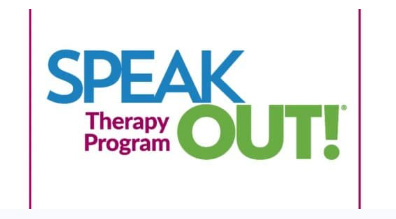
SPEAK OUT! Therapy combines education with speech, voice, and conversation exercises outlined in a SPEAK OUT! Workbook. Together, SPEAK OUT! Providers and their patients employ the principles of motor learning with multiple repetitions and intensive home practice. They complete the lessons in the workbook deliberately and purposefully. Patients take back control of their speech. They turn their speech into an intentional act. The goal is for every patient to regain and retain their speech and swallowing for a lifetime!
Patients typically reach their individual SPEAK OUT! Therapy goals in 8 to 12 sessions, which are usually 30-40 minutes long 2-3 a week. Family involvement is important for SPEAK OUT! Therapy success.
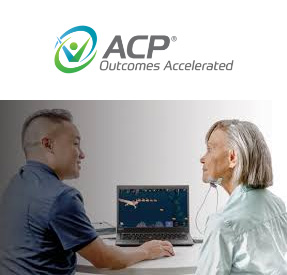
Synchrony is a dedicated biofeedback system for treating dysphagia and swallowing disorders. By detecting electrical activity in muscles with a unique pattern designed for the throat, Synchrony works to strengthen the throat and jaw and improves functional chewing, swallowing, and speech.
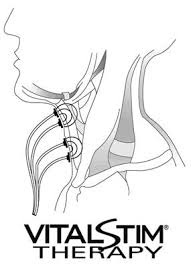
VitalStim
VitalStim therapy is a specialized form of neuromuscular electrical stimulation (NMES) used to treat dysphagia, or swallowing difficulties. It involves the application of small electrical currents to the throat muscles via electrodes placed on the skin. The electrical stimulation helps strengthen and retrain the muscles involved in swallowing by causing them to contract, improving coordination and function over time.
Typically, VitalStim is used in conjunction with traditional swallowing therapy exercises, enhancing their effectiveness. It is most commonly used for patients recovering from strokes, neurological conditions, or injuries that impair swallowing abilities. A licensed speech-language pathologist (SLP) trained in VitalStim usually administers the therapy.
The goal of VitalStim is to improve the patient's ability to swallow safely, reduce the risk of aspiration (food or liquid entering the airway), and improve overall quality of life.
Preparing for Your Appointment
During the initial evaluation, your SLP will discuss your medical history, current condition, and functional needs. Treatment plans are highly individualized and dependent upon the problems you are facing. The primary goals of each plan are designed to restore function and improve quality of life using patient-centered tasks and interventions.
